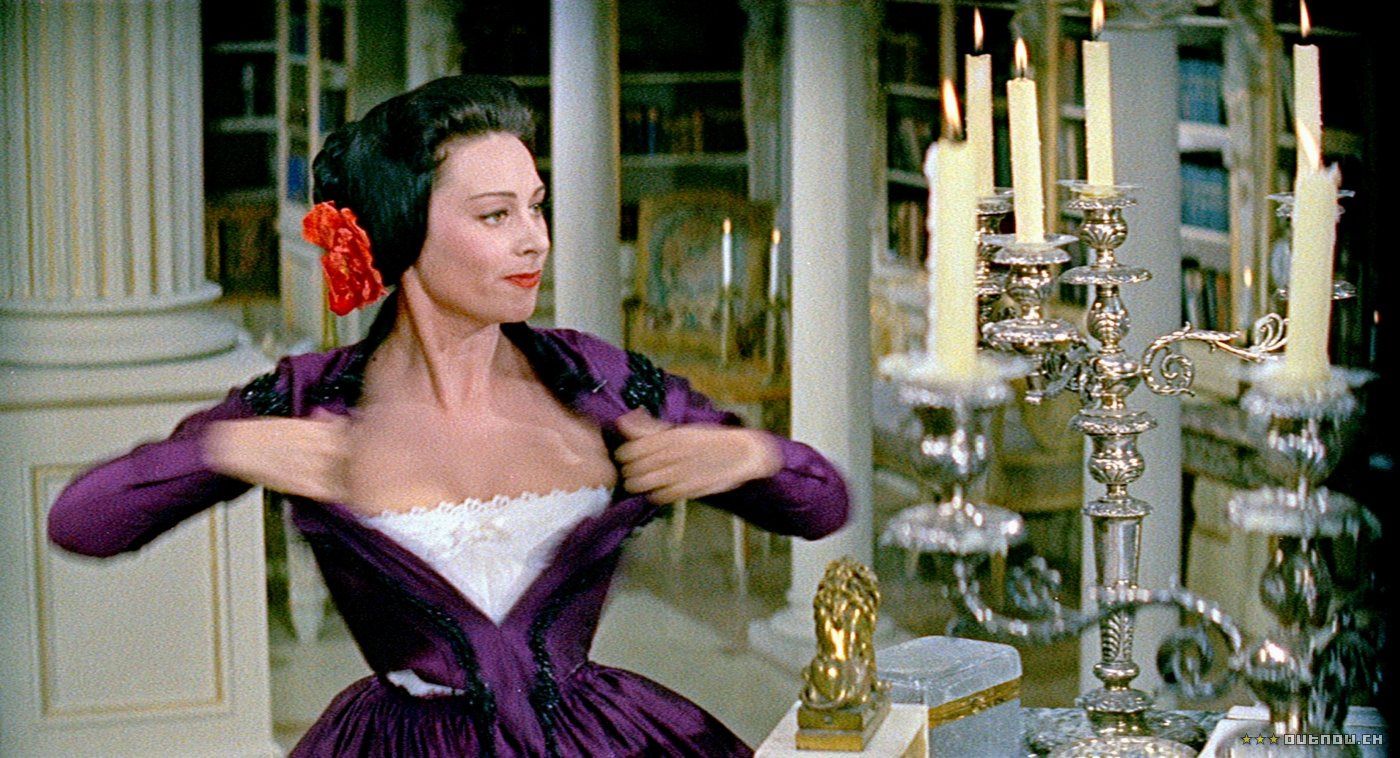Lola Montès is a treasure, long thought disfigured, from a time when the movies were still aspiring to be the greatest show on Earth. At its heart sits the eponymous 19th-century actress and socialite (the very lovely Martine Carol), first observed as a numbed presence in a touring circus overseen by ringmaster Peter Ustinov, answering questions from the audience on the subject of her romantic and sexual misdaventures. An early flashback finds Lola loving and leaving Franz Lizst (Will Quadflieg), thus establishing the high artistic calibre of her conquests; elsewhere, she's carted off by the Cossacks (painful) at the behest of the Russian count who's become obsessed with her; she proves so overwhelming she causes a Turkish wrestler to lose his first bout ever; and eventually she ends up fomenting revolution in Bavaria after tempting Ludwig I (Anton Walbrook) from his wife. As the show goes on, it becomes clear that the woman who gave her body to so many may be, as a doctor observes, "worn out before her time", and might not be around for the encore.
You might read it as a cautionary tale, then, except - up until its final moments - the film, the final screen credit of the great director Max Ophüls, never feels like it: it's alive, all-embracing, unfailingly passionate. Ustinov sets the tone when first offering Lola her own spot in the show: "We'll show everything women dream of doing, but don't dare." Lola's sexuality is presented as transgressive - she tears off the dresses that would corset her - and celebrated as a vehicle for one woman's social mobility. Its sister film would be Renoir's French Cancan, another jouissance only recently restored to its former glory: both films seek to imbue an innately theatrical set-up with a certain worldliness and life-wisdom (who better to serve as a ringmaster than Ustinov, that anecdotalist and bon viveur par excellence?), and viewing them back-to-back, one might see how the European cinema of the 1950s came of age.
Ophüls uses curtains, frames-within-the-frame and lens trickery to illustrate the constraints his heroine rubbed and pushed against - key production design: the staircase wrapped around an aviary of caged birds - but he uses sound (and Georges Auric's score, in particular) to open the film out. Lola is a melody everybody's trying to nail down, and Carol, playing her from debutante to rueful middle-age, gives a supremely skilful performance, asked to act, ballet dance and tightrope-walk both literally and figuratively in keeping sympathetic a character one might otherwise find infuriatingly flighty. Upon its first release, producers perturbed by the film's intricate structure hacked away at it, reducing the cathedral Ophüls built for his heroine to rubble; the recent restoration, however, reveals Lola Montès as way ahead of the curve on celebrity, and apt for appropriation as one of cinema's most essential feminist texts. The downer conclusion looks to be heading into Thelma & Louise territory - apparently setting up a final leap into freedom - but the very last shot is pure Peter Greenaway, unsparing and hopeless in its pageantry, as Lola gives herself up to men and commerce once more, this time perhaps for good.
Lola Montès is available on DVD through Second Sight.

No comments:
Post a Comment